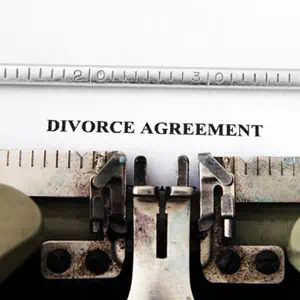How to Negotiate a Divorce Agreement
Negotiating a divorce settlement agreement can be approached in several ways, and typically begins with a comprehensive financial disclosure from each party.
One common practice, particularly when property, assets, or debts are involved, is for both parties to exchange a sworn net worth statement. While not a requirement, this is highly recommended. A sworn net worth statement is a standard financial document in divorce cases that discloses each party’s income, assets, and liabilities. This level of transparency ensures that all marital property and wealth are accounted for, avoiding potential disputes or issues of hidden assets down the line.
Negotiation Methods
Once these statements are exchanged, negotiation can proceed in one of three ways:
- Settlement Proposal Letters: One attorney, after discussing with their client, can produce a settlement proposal letter, outlining the terms their client would accept. This sets a basis for negotiation and allows the attorneys to gauge whether they are in the same ballpark or far apart on key issues.
- Direct Attorney Discussions: Alternatively, instead of initially drafting a written settlement proposal, the attorneys might engage in direct discussion, either via phone calls or emails. This approach can quickly address immediate issues and establish each party’s main concerns and demands.
- Four-Way Settlement Conference: A more collaborative approach is to conduct a four-way settlement conference involving both parties and their respective attorneys. This could take place in a physical conference room or, increasingly, via digital platforms like Zoom. During this conference, all key issues, such as property division, asset allocation, custody, visitation, child support, and spousal support, are discussed to try and reach an agreement.
Regardless of the method used, it’s crucial to resolve what attorneys refer to as the ‘basic terms of settlement’ before drafting the actual divorce settlement agreement. Drafting a comprehensive settlement agreement before ensuring both parties are willing to settle might result in wasted time and money.
Remember, while most divorces do end in settlement, you don’t want to draft a settlement agreement first without confirming that both parties are committed to resolving the divorce amicably. The negotiation phase is a crucial step in the divorce process and should be approached with care and thoroughness.
Can a Divorce Agreement Be Modified at Any Time?
The ability to modify a divorce agreement depends on the specific issue. Generally, divorce agreements can be modified regarding custody or visitation issues because the court retains jurisdiction over these matters as long as the children are minors. In New York, this is defined as up to 18 years of age.
The standard for modification always revolves around the best interests of the children. However, the parent seeking to modify must prove a “change of circumstances.”
Child support can also be modified. In New York, a statute enacted in 2010 allows for automatic modification of child support once every three years, or if there’s been a change in income, up or down by 15%, unless the agreement specifically opts out of this provision.
Non-Modifiable Issues: Property and Assets
In theory, provisions relating to property or assets can be modified if the original agreement was unclear. However, this type of modification is considerably more challenging. If the Judge finds the agreement clear, they are likely to dismiss any modification request. Therefore, it’s crucial to ensure precise terms for property and asset distribution in the original agreement.
For example, in a previous case, a settlement agreement stipulated that the husband received 50% of the wife’s 401k. However, the wife had a pension, not a 401k. The husband’s later request for modification to claim 50% of the pension was denied, as the original agreement clearly specified the (nonexistent) 401k – and waived all other assets not otherwise addressed.
This case underscores the importance of clarity and full disclosure when establishing a divorce settlement agreement. Insisting on financial statement exchange can offer a safety net to argue for modification if the other party has misled you about their assets. However, it’s best to confirm all details to avoid misunderstandings or misrepresentations. One way to do that is to request statements from each of the financial accounts which a party discloses on the net worth statement. This way, if a party claims on the net worth to have a 401k – but the statement reveals it’s actually a pension – then the agreement can incorporate the more precise language.
For more information on Negotiating A Divorce Agreement In New York, an initial consultation is your next best step. Get the information and legal answers you are seeking by calling (914) 362-3080 today.

Call Now To Schedule A 20-minute Case Assessment
Or Full 50-minute Case Strategy Consultation!
(347) 797-1188 | (914) 362-3080


